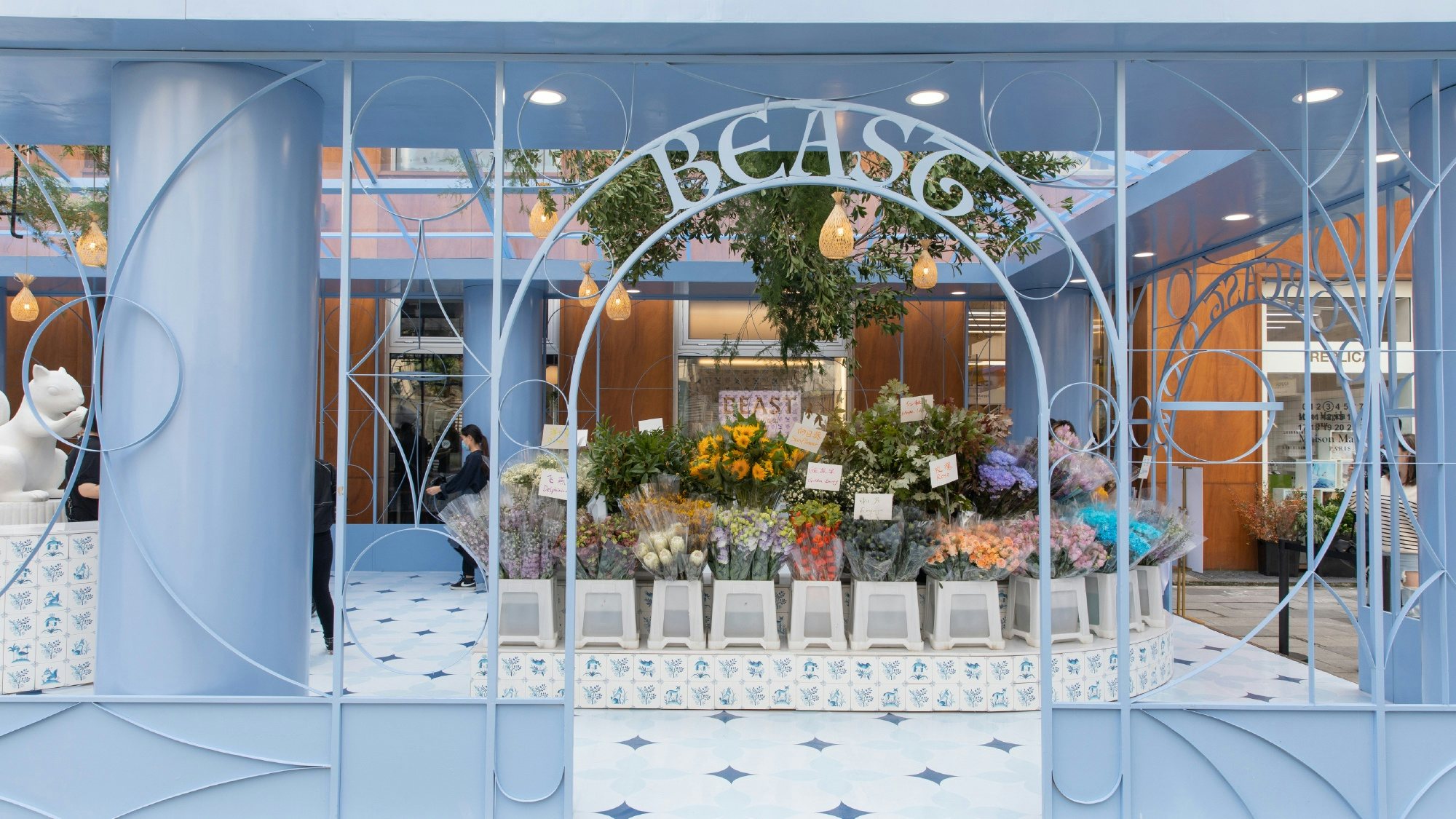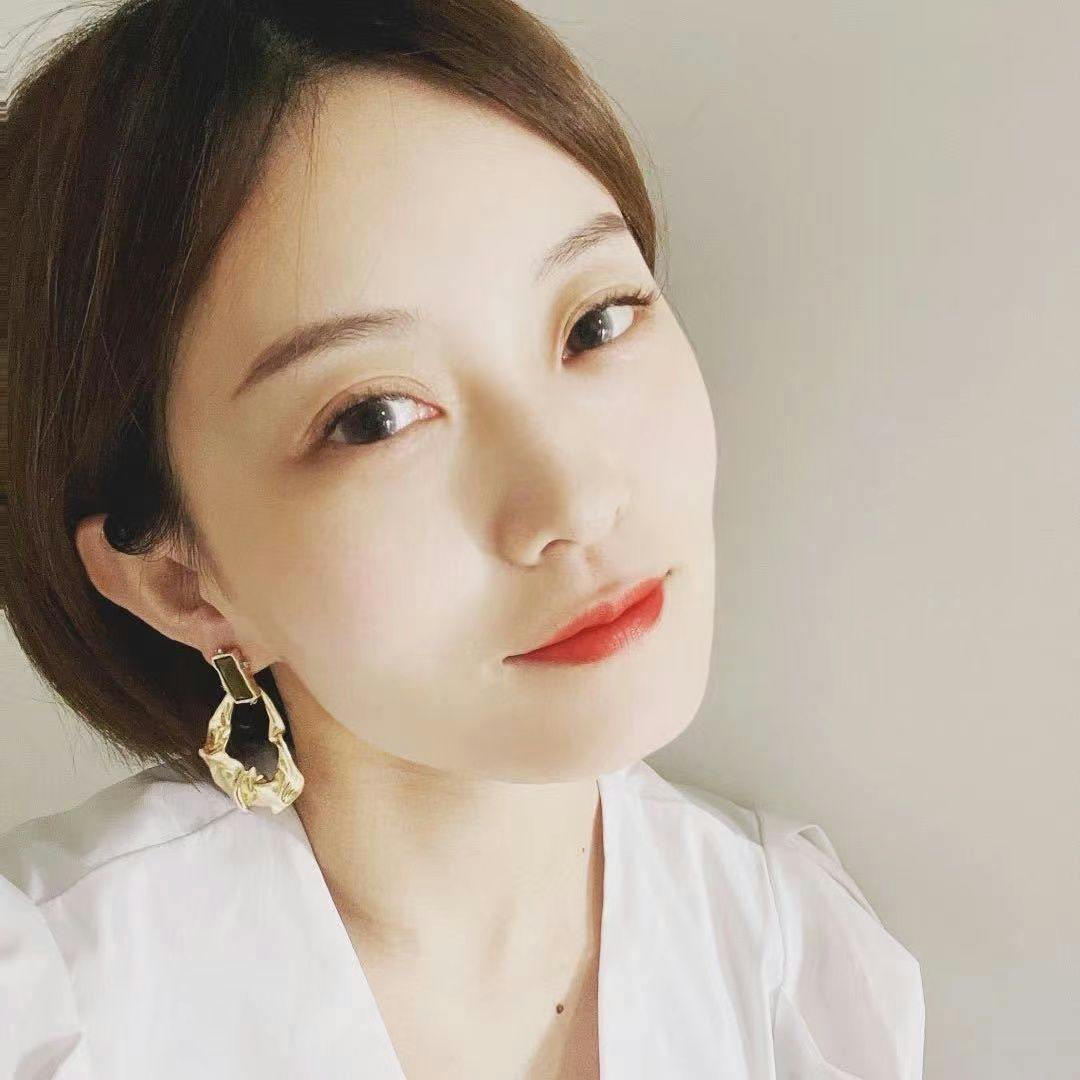While you may think that buying a bouquet of flowers is an occasional activity, perhaps best saved for only certain holidays, in China, it’s a massive market. According to the Report on Merger and Reorganization Opportunity Research, the Chinese flower market has reached $17.2 billion (109.72 billion RMB) and is forecasted to hit $30.4 billion (194.37 billion RMB) by 2023.
For brands, this is a lucrative opportunity — but one beset by fierce competition. According to QCC, a business information search platform, there are currently 410,500 flower-related enterprises, including The Beast and Roseonly, as well as traditional e-commerce platforms such as Taobao and JD.com. Even fresh food e-commerce platforms like Hema and Dingdong have got in on the action.
In such a saturated market, how can one hope to stand out? Jing Daily looks at several key points for those wishing to grasp the complexities of flower retail in China.
Flowers as luxury goods#
Tang Jiani, a Gen Z fashion enthusiast, told Jing Daily, “A classmate of mine once bought a bouquet from The Beast for $1,570 (9,999 RMB) as a gift for his girlfriend, which refreshed my opinion of their classiness. If your boyfriend gave you such high-end flowers, would you not be thrilled?”
The reason why The Beast can be confident in such product prices lies with their brand identity, which is based around personalization and strong aesthetics. Each bouquet is designed like a piece of art, and $137 (880 RMB) allows a customer to get their flowers specially customized. Bouquets priced at $155-$940 (990-5,999 RMB) are popular with consumers for their eye-catching names and classy designs, for example, “Blue Sky” and “Hot Explorer” to express love, or messages such as “A Little Luck” and “Best Wishes to You.”
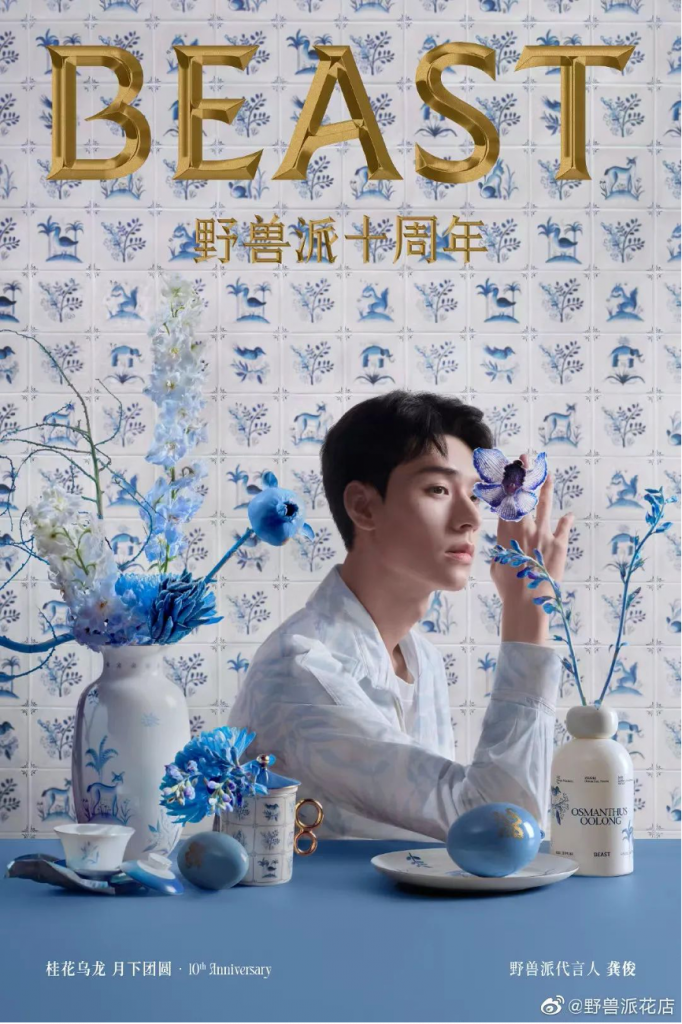
Of course, The Beast is not the only flower seller that has chosen to go high-end. Known for its romantic tagline “for one person only in a lifetime,” Roseonly is a label sought-after by many women. It brought Ecuadorian roses (or the “world’s most beautiful roses'') into the mainland for the first time, introduced the concept of everlasting roses to Chinese consumers, and ushered in a new era of rose gift boxes. Many celebrities, including Zhang Ziyi and Yang Mi, have shared their Roseonly roses online. Indeed, this is a crucial part of the experience for consumers. The logic behind this phenomenon is based not only on the beauty of flowers but also (and perhaps more importantly) on the company’s physicalization of a lover’s promise.
Alongside this, it is worth noting that these establishments have opened physical stores in middle- to high-end shopping malls like HKRI Taikoo Hui and K11 Shanghai. This reinforces the brands’ images while enhancing customer experience and trust.
Affordability and diverse sales models to attract more#
With the basic needs of “clothing, food, housing, and transportation” of most people having been met, more and more consumers are aspiring to a higher quality of life. Under these circumstances, many vertical markets in the flower industry have emerged and flower e-commerce platforms are one of the core forces in this movement.
In 2015, flower e-commerce outfits Reflower and Flowerplus were established. Unsatisfied with only providing services for certain occasions (such as weddings and festivals), they took the lead in introducing affordable fresh flowers to the mass market. They initiated a monthly model, namely four “mystery boxes” of flowers delivered weekly for $15 (99 RMB) a month. In the days when traditional physical flower shops dominated the market, a single bouquet sold at over this fee was more than common — due to complex supply chains and store operation costs. With its innovativeness and affordability, the monthly model quickly became all the rage.
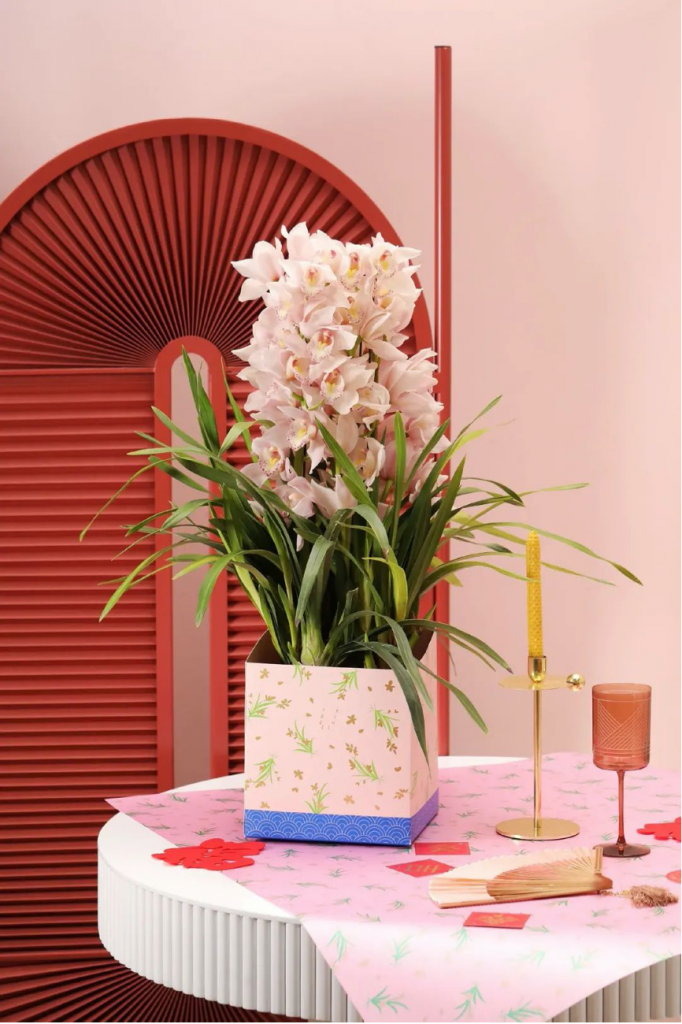
Thanks to the rise of Douyin and other “interest e-commerce” platforms, many merchants started selling affordable flowers via livestreaming. Take @花仙子鲜花, a seller with 1.35 million followers on Douyin: the products sold in the user's livestreaming sessions are all under $12 (80 RMB) and most bouquet packages are priced at around $5.4 (34.9 RMB). Some Douyin sellers have even built their own customer communities, from whom they receive advance payments for group-buys, and gain large numbers of orders by encouraging existing members to recruit WeChat friends to join on a low-priced tier.
Selling via livestreaming on both Douyin and Taobao, Flowerplus attracts consumers mainly via discounted pre-sale prices. It then stocks up according to the number of pre-sold products. With this model, the brand can know relatively precisely the products customers prefer and the number in demand. Meanwhile, it can prepare the stock accordingly to avoid waste.
Moreover, sellers often adopt the sales tactic of the complimentary gift to win new customers. Reflower is a perfect example: it gives new customers a free vase with their first purchase. When the flowers die, the empty vase will naturally remind the customer to buy another bunch of flowers, and thus customer retention is achieved.
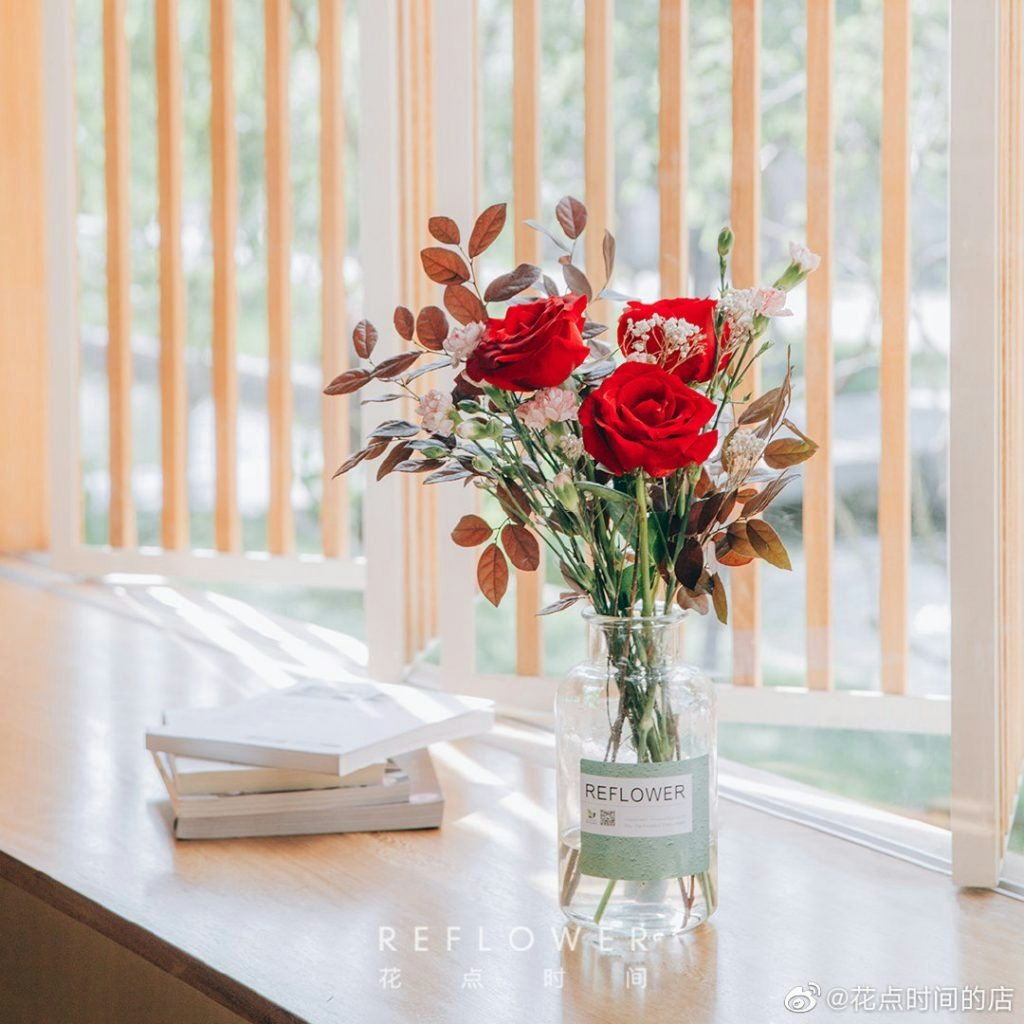
Quality: A problem hard to solve#
However good the sales model is, flower quality is always a concern. Due to climatic limitations, the country’s flower plantations are mainly in Yunnan, Guangdong, and Liaoning Provinces. Because of a lack of scaled development (and the fact that most plantations are rural households), quality is rarely consistent. Besides this, flowers have short shelf lives and high transportation requirements. Almost no enterprise can 100 percent guarantee how good the flowers received by customers will be. According to iiMedia Research, after quality, delayed delivery and the after-sales service attitude of flower e-commerce sellers are the most serious problems — complained about by 54.5 percent and 29.7 percent consumers, respectively.
No matter how large the market, making a business work in this area is obviously no easy task. However, from high-end representatives such as The Beast and Roseonly to low-price winners like Reflower and Hema, companies have gradually cultivated consumer awareness of the desirability of their products and achieved initial success. In the future, with the simultaneous development of multiple trends, including branded high-end flower arrangement and diversified product lines of existing floral groups, the winners will be those who can break through current sales models, attract consumers from outside the niche, and cover a large area in supply chain and delivery.
